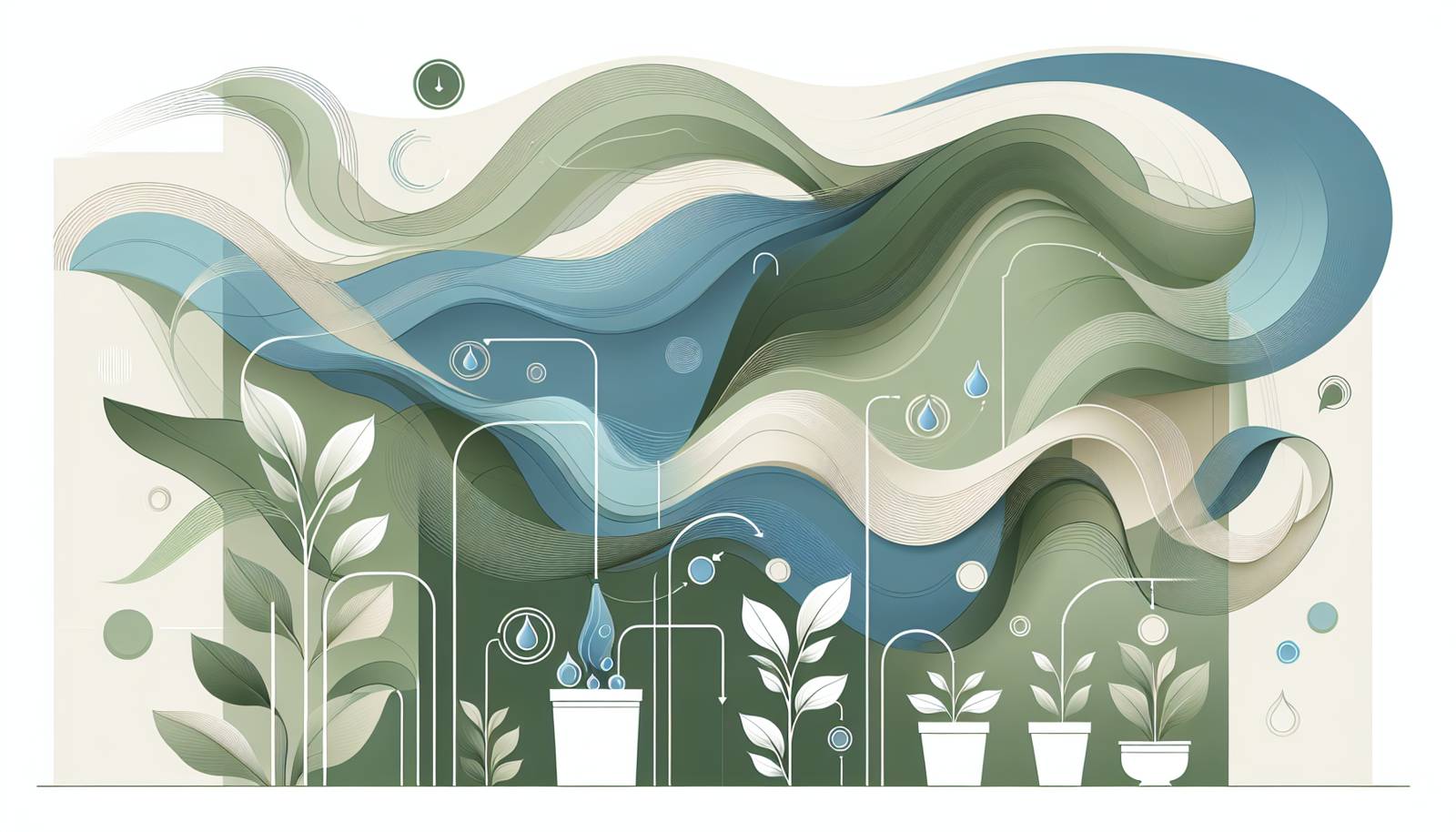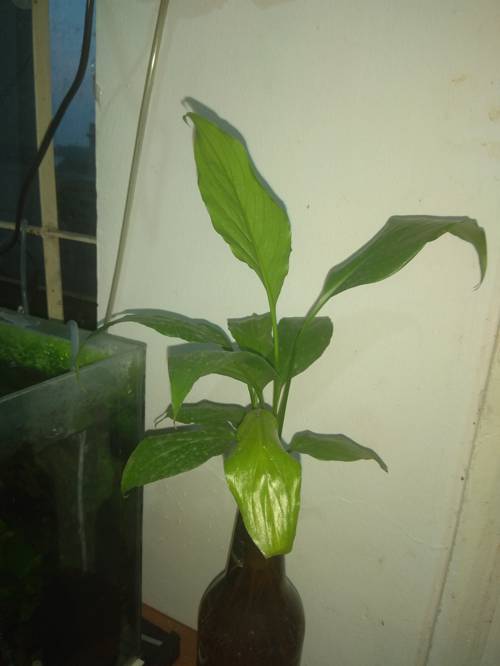
FAQ About Indoor Plant Water Recycling Techniques

What is indoor plant water recycling?
Indoor plant water recycling involves reusing water from various sources to hydrate indoor plants. This practice helps conserve water and is part of a sustainable gardening approach.

Why is water recycling important for indoor plants?
Water recycling is important because it helps conserve water, reduces waste, and can lower water bills. It promotes a sustainable lifestyle and can improve the health of indoor plants by using nutrient-rich water sources.

What are some common sources of recyclable water for indoor plants?
Common sources include water from cooking (such as boiling vegetables), aquarium water, collected rainwater, and the water used for rinsing fruits and vegetables. These sources often contain additional nutrients beneficial for plant growth.

How can I collect rainwater for indoor plants?
Rainwater can be collected using a small roof catchment system or by placing containers outdoors to collect it directly. Ensure the collected water is clean and free from contaminants before using it for your plants.

Is using greywater safe for indoor plants?
Greywater, which refers to gently used water from sinks, baths, and laundry (excluding water from toilets), can be used if it is free of harsh chemicals and contaminants. It's essential to use biodegradable soaps to ensure the safety of using greywater on plants.

What precautions should I take when using recycled water?
Avoid using water that contains harsh chemicals, salts, or oils. Opt for using biodegradable and plant-friendly products to prevent harming your indoor plants. Also, monitor the health of your plants regularly to ensure they are responding well to the recycled water.

Can I use leftover tea or coffee for watering plants?
Yes, leftover tea or coffee can be used to water plants as long as they are free from added sugars or milk. These beverages contain small amounts of nutrients that can benefit some houseplants, but moderation is key to prevent soil acidity issues.

Does recycled water affect the pH level of soil?
Yes, recycled water can affect the pH level of soil, depending on its source. It's important to regularly check soil pH and adjust it if necessary, especially when using water from sources like tea, coffee, or greywater.

How often should I water plants with recycled water?
Watering frequency with recycled water should be similar to regular watering schedules. Monitor the plant's soil moisture and environmental conditions to determine when watering is necessary. Over-watering can lead to root rot regardless of water source.

Can aquarium water be used for indoor plants?
Aquarium water is excellent for indoor plants because it's rich in nitrogen and other nutrients from fish waste. Ensure to use it only if the water doesn't contain harmful chemicals or excessive salt content from saltwater aquariums.

What is the impact of recycled water on plant growth?
Recycled water can positively affect plant growth due to the additional nutrients present in various recycled sources. It can lead to healthier plant growth if used appropriately, ensuring that any potential contaminants are avoided.

How do I ensure recycled water is not harmful to my plants?
To ensure recycled water is safe, test it periodically for pH and chemical contents. Using natural and biodegradable products in your home can reduce chemical residue in the recycled water, minimizing potential harm to plants.

Should I filter greywater before using it on my plants?
Filtering greywater helps remove solids and reduces harmful chemicals from soaps and detergents. Consider simple filtration options, such as mesh strainers or more advanced filtration systems, to ensure only benefit your plants.

What plants respond well to recycled water?
Many indoor plants such as pothos, spider plants, and peace lilies respond well to recycled water. When experimenting, always consider starting with hardier plants to observe how they react before applying to more sensitive species.

Can I use water from boiled vegetables on all types of indoor plants?
Water from boiled vegetables can be rich in nutrients, making it beneficial for many plants. However, avoid using it on plants sensitive to minerals or in excess quantities which might alter soil composition adversely.

How can I make my recycled water more plant-friendly?
Making recycled water plant-friendly involves ensuring it is free from contaminants. Using organic soap and avoiding chemicals in daily water usage will help maintain water quality, making it more suitable for plants.

Is it necessary to use fresh water with recycled water when watering plants?
While not always necessary, mixing fresh water occasionally with recycled water ensures a balanced nutrient mix, preventing potential buildup of any specific elements in the soil that might occur with consistent use of a single recycled source.

How does the recycling of water benefit the environment?
Water recycling significantly reduces water waste and conserves resources, particularly in water-scarce areas. It reduces the demand on municipal water supplies, promoting sustainability and encouraging environmentally friendly practices.

Can I use soapy water to water my plants?
Using soapy water can be beneficial in deterring pests but should be limited to mild soaps without harmful chemicals. Regular use of soapy water is not recommended as it might accumulate harmful residues in the soil.

How can I store collected water for future use?
Store collected water in clean, airtight containers away from direct sunlight to prevent algae growth and contamination. Using opaque containers can also minimize light penetration, helping preserve water quality.
